Solomon Islands, China military deal: What it means for Australia
A Solomon Islands pact with Beijing will bring the Chinese military just 2000 km from Australia’s shores. This is what happened and what it means.
World
Don't miss out on the headlines from World. Followed categories will be added to My News.
Two years ago, Australia quite literally connected with Pacific neighbour the Solomon Islands.
A 4700km long undersea fibre-optic data cable largely funded by the Federal Government to bring high speed internet to the Pacific was laid, connecting capital Honiara to Australia via Tamarama Beach on Sydney’s eastern beaches.
Australia’s more than $136 million commitment was specifically designed, on strategic security advice of Australia’s intelligence services, to shut-out China’s Huawei which also wanted to do the Pacific cable connection project.
Such was the concern of a Chinese telco effectively linking Australia and the Solomon Islands, with plug in to both, in 2017 Australian Secret Intelligence Service spy chief Nick Warner personally spoke with Solomon Islands Prime Minister Manasseh Sogavare who had long sought a China input.
Fast forward to August 2019 and Australia made the achievement in what Foreign Minister Marise Payne noted “without any exaggeration this will change lives”.
Well it did but perhaps not in the way the Federal Government would have liked.
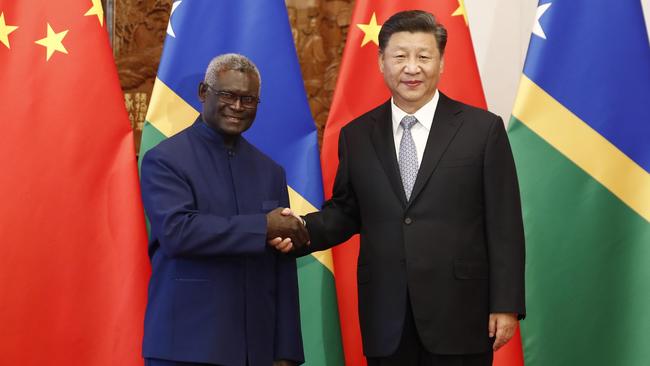
Solomon Islands this week confirmed it was now signing a security pact with China that will allow not only the deployment of Chinese troops in the Pacific under the auspices of the Solomon Islands but also potentially establish a naval base there under an agreement to allow the Chinese PLA military a “replenish port”.
This effectively will now place China’s military assets just 2000km from Australia’s shores, metaphorically and physical half the distance than Australia thought its cable deal would strategically tie the Solomon Islands to Australia and keep China out.
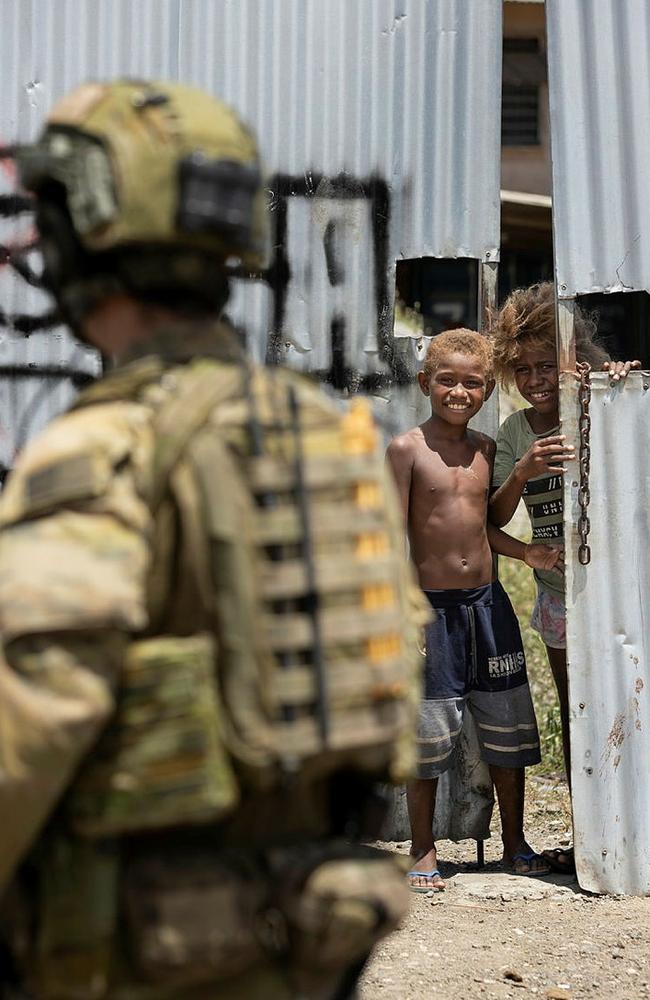
The move exposes for the first time China’s military intent for the region and rightly has both Australia and New Zealand, and further afield the US military’s Indo-Pacific Command, concerned.
The significance of the move cannot be overstated, this is a disaster for Australian foreign policy makers and brings into question the government’s much touted more than $1.4 billion Pacific Step Up program introduced in 2018 to fund the Pacific Islands with critical infrastructure including military training, hardware, intelligence sharing and aid designed in part to counter China’s offers of huge regional loans and spending.
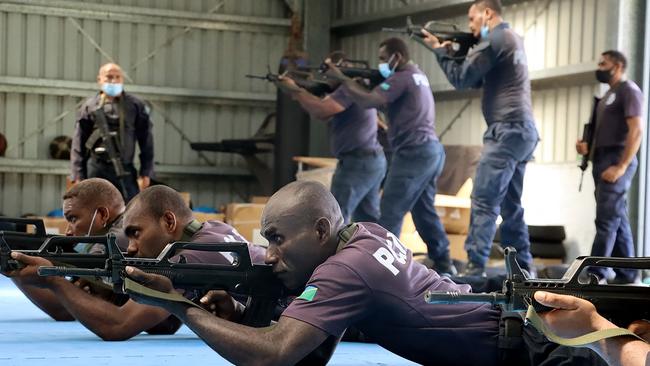
“We find it very insulting, Mr Speaker, to be branded as unfit to manage our sovereign affairs,” Mr Sogavare told his parliament this week of Australia’s concern of his move for a pact with China, that some analysts have likened to Australia’s own Cuban missile crisis standoff.
The leader said his country would welcome anyone who wanted to support security and labelled as “utter nonsense” claims China’s presence in the Pacific was a security threat.
He insisted the Solomon Islands security pact with Australia remained intact.
But will it really? Probably yes but with a caveat.
Gifts of ageing patrol boats to the Pacific including the Solomon Islands will not change nor will joint training exercises.
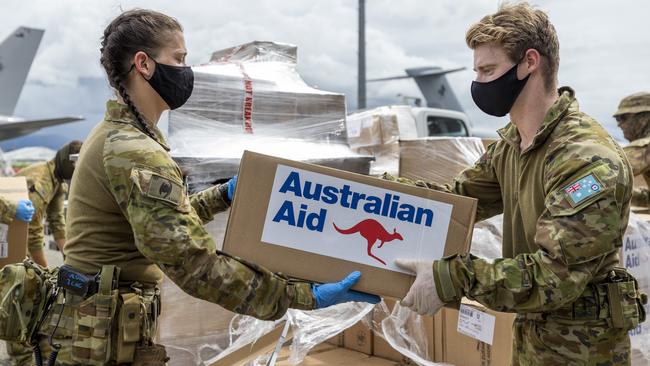
But the ADF’s quest for “interoperability in weapons and tactics and security”, as agreed in 2019, may need tweaking as will touted access to regional intelligence, an ADF and law enforcement move to bring all Pacific Islands into the regional security tent.
The Australian Defence Force has had a long standing commitment with the Solomons, a relationship that goes back to World War 2 and increased significantly in the 2003 with the creation of the Regional Assistance Mission to Solomon Islands (RAMSI) program that ran for 14 years.
Clearly Canberra has failed though to assure it could supply security needs as a dedicated partner to the region as required.
It was telling Sogavare this week chose to mention the fact he had asked Canberra to build him a navy base but was knocked back.
That however did not stop the government to ask Canberra for ADF and Australian Federal Police help to contain civil riots in Honiara last year, ironically the source of which was partly local grievances over Honiara’s diplomatic allegiance switch from Taiwan to Beijing a year earlier.
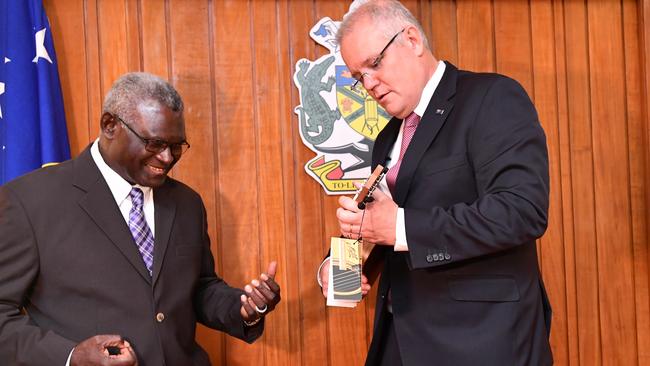
Australian Strategic Policy Institute analyst and executive director Peter Jennings said despite all of this assistance, there was simply Australia’s broader benign neglect of the region.
“In truth we don’t have a close or privileged relationship with many Island governments,” he said.
“We shouldn’t be surprised if Honiara concludes that, for all the talk about being family, Australia is just not that engaged. We turn up with police and soldiers when Honiara riots, but China turns up, and stays, with bags of money.”
Tarcisius Kabutaulaka, a Solomon islander and associate professor and former director of the Center for Pacific Islands Studies at the University of Hawaii, said perceptions were everything and the real danger was geopolitical competition from foreign nations in domestic affairs.
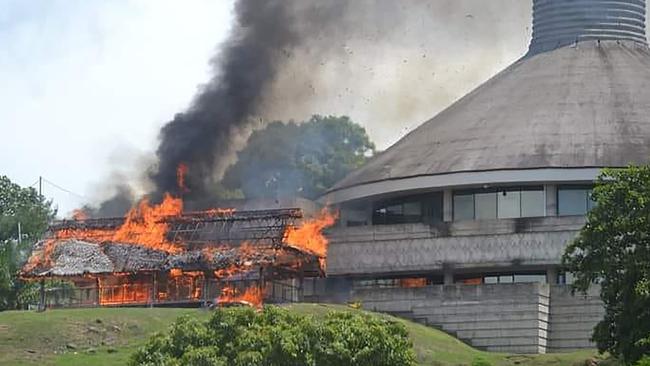
Speaking through the Lowy Institute in Australia he said the reaction from Washington, Canberra and Wellington had been framed largely by the “China threat” narrative and the need to protect their traditional dominance in the region.
“The reaction from Western nations reflects a deep-seated desire to deny China access to Oceania, reminiscent of the “strategic denial” approach the West had towards the former Soviet Union during the Cold War,” he said.
He said it was doubtful China would build a naval base, there was no history of establishing outposts with the exception of one in Djibouti in Africa, but the danger was the rhetoric and posturing by Solomon Islanders themselves and the local anti-China rallies that have emerged since 2019 after the dropping of recognition of Taiwan.
“The geopolitical competition is exacerbating domestic divisions that are likely to trigger conflicts,” he said.
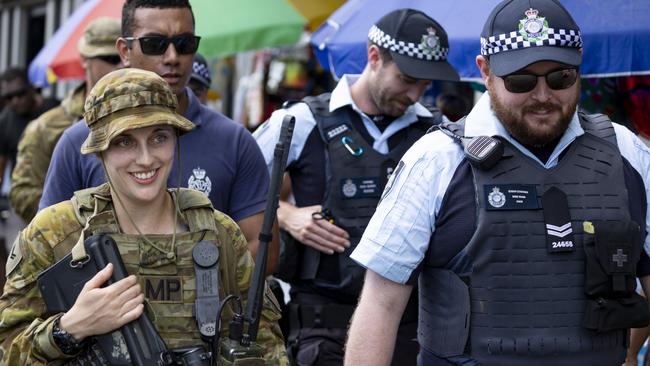
China has attempted to establish a military presence in Fiji and Papua New Guinea in the past and is currently dredging Cambodia’s Ream Naval Base in a reconstruction project that is believed to include private China military access to a section of the base in exchange for funding its overhaul.
The price of military leadership was recognised in this week’s federal budget, where “profound uncertainty and disruption” prompted a $575 billion commitment that will push defence spending above the usual 2 per cent GDP threshold.
But analysts remain wary on whether it is still too little, too late.




